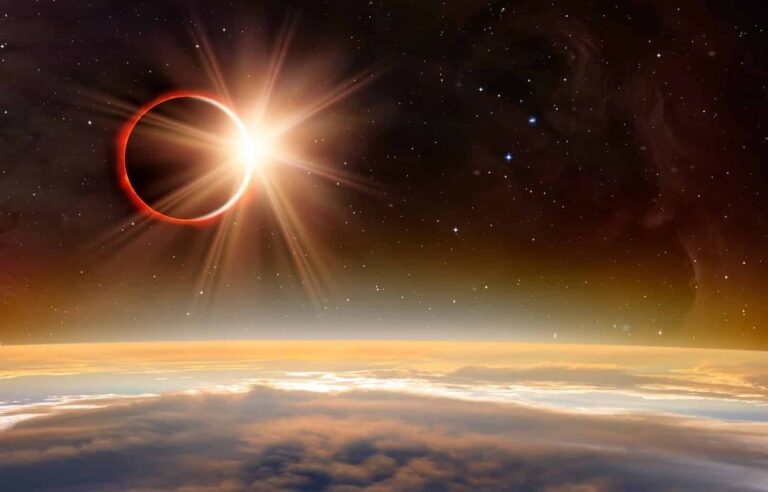Experience the April 8th Solar Eclipse Experience in the Heart of the U.S.
Learn all the essential details about the upcoming Solar Eclipse on April 8th, including when to watch and how to observe it safely. This celestial event, returning for the first time since 2017, promises a spectacular view, especially from the United States.
How It Happens

A solar eclipse occurs when the moon passes between the sun and the earth, blocking the sun’s light from reaching us. A total solar eclipse is when the moon completely blocks out the sun, rather than just partially, due to the three celestial bodies aligning perfectly.
How Often Does a Total Solar Eclipse Happen?

A partial solar eclipse is not particularly uncommon—it occurs up to five times a year. However, a total solar eclipse occurs only around every 18 months and only reaches certain parts of the globe.
Prime Location

While the US can enjoy this sight on Monday, April 8th, the UK won’t see one until 2090. So, the US is one of the prime locations to witness this month’s total solar eclipse.
How Long Does a Total Solar Eclipse Last?

This eclipse will last a maximum of around 4.5 minutes in any one place.
First and Last Onlookers

One of the first cities it will reach is the Mexican coastal city of Mazatlán, where the eclipse will last 4 minutes and 17 seconds. Other places, such as Austin, Texas, will have under 1 minute to enjoy the phenomenon.
Is It Safe to Look?

Never look directly at an eclipse. It might be tempting, but it isn’t safe for your eyes. There are two simple, and safe, ways to catch sight of the event.
Get the Glasses

Firstly, you can purchase solar eclipse sunglasses for under $10. These are usually found in stores ahead of the event in most cities in the path of the eclipse.
Create a Pin-Hole Camera

Secondly, you can make a pinhole camera—simply make a small hole in a piece of card and hold this between the eclipse and a piece of plain paper. Looking at the paper will show a projection that is perfectly safe to view.
Where Will the Eclipse Be Visible?

The eclipse’s path will cross into the US, starting in southwest Texas and ending at the Canadian border in Niagara, NY.
The Totality

The time when the moon completely obscures the sun is known as the totality. For varying amounts of time, the totality will travel through several states and major cities in the United States. Some of those places along the path are Dallas, TX, Indianapolis, IN, Lake Erie, and Buffalo, NY.
A Rare Occurrence

Notably, most places on the planet can only expect to be in the path of totality for an eclipse once every 400 years. However, Carbondale, IL, is again in luck after seeing its last eclipse just 7 years ago 2017.
What Time to Look

The Eclipse will start over the Pacific Ocean early in the morning of April 8, with totality reaching Mexico at 11.07 am.
From Austin to Dallas

Austin can expect their (almost) 60 seconds of darkness at 1.35 pm; thankfully, they can also expect clear weather to help them catch a glimpse. Exactly five minutes later, Dallas will get their 3 minutes to safely look up.
What Will It Look Like?

Once you’ve put on your protective glasses or made your pinhole camera, what can you expect to see?
Into the Darkness

Well, in short, darkness. During the time of totality, it will be just like nighttime. Just before and after totality, the moon will be partially blocking the sun’s light, so there can be around an hour on each side of “sunset” and then “sunrise” before the day goes completely back to normal.
All About Distance

While the moon is about 400 times smaller than the sun, it is able to block it out completely from us because the moon is about 400 times closer.
Look for the Halo

This leaves only the sun’s “halo” or corona visible during the real darkness—the classic image of an eclipse that you’ve perhaps only seen in photos—until now.
The post Experience the April 8th Solar Eclipse Experience in the Heart of the U.S. first appeared on Hello Positive Mindset.
Featured Image Credit: Shutterstock / muratart.






